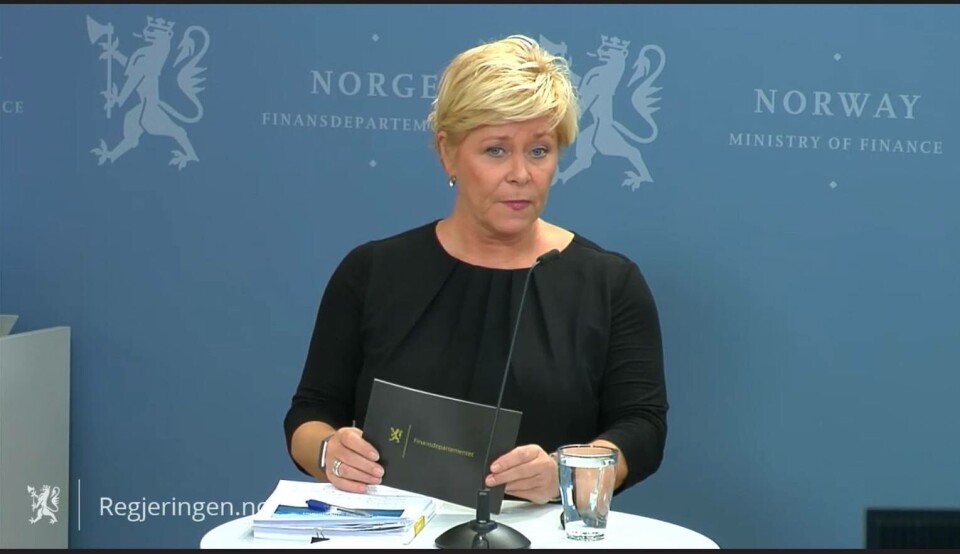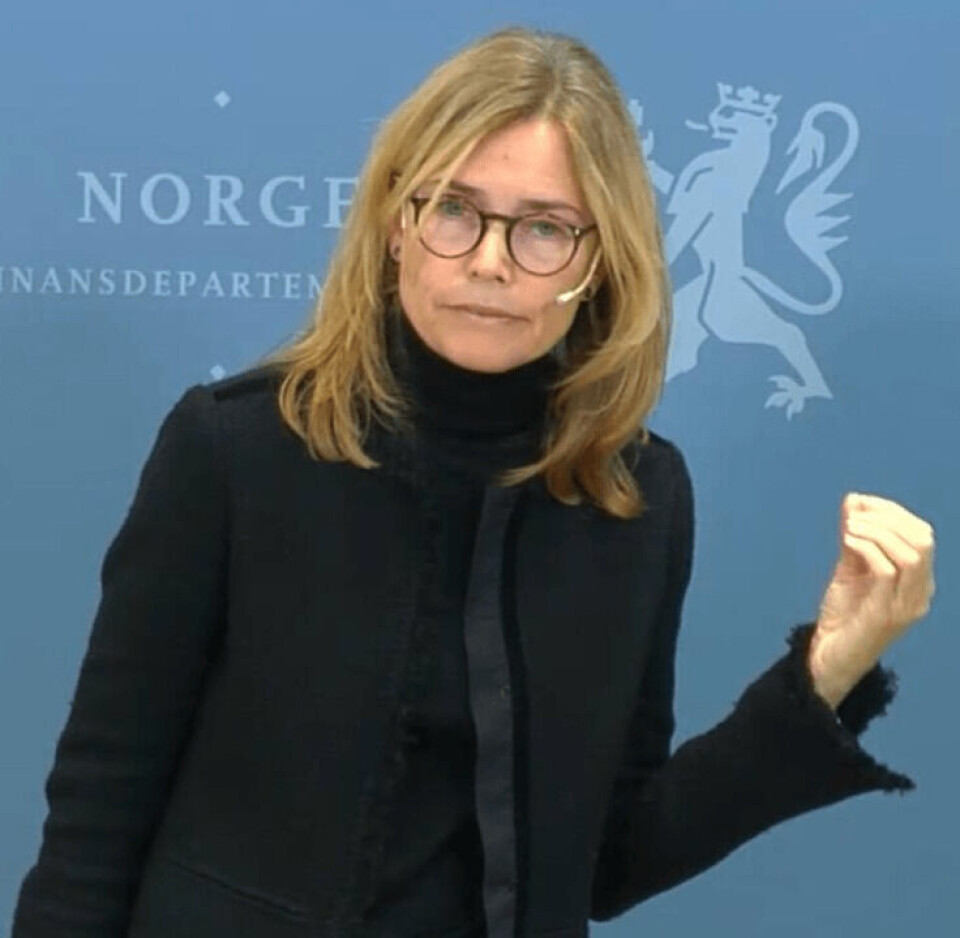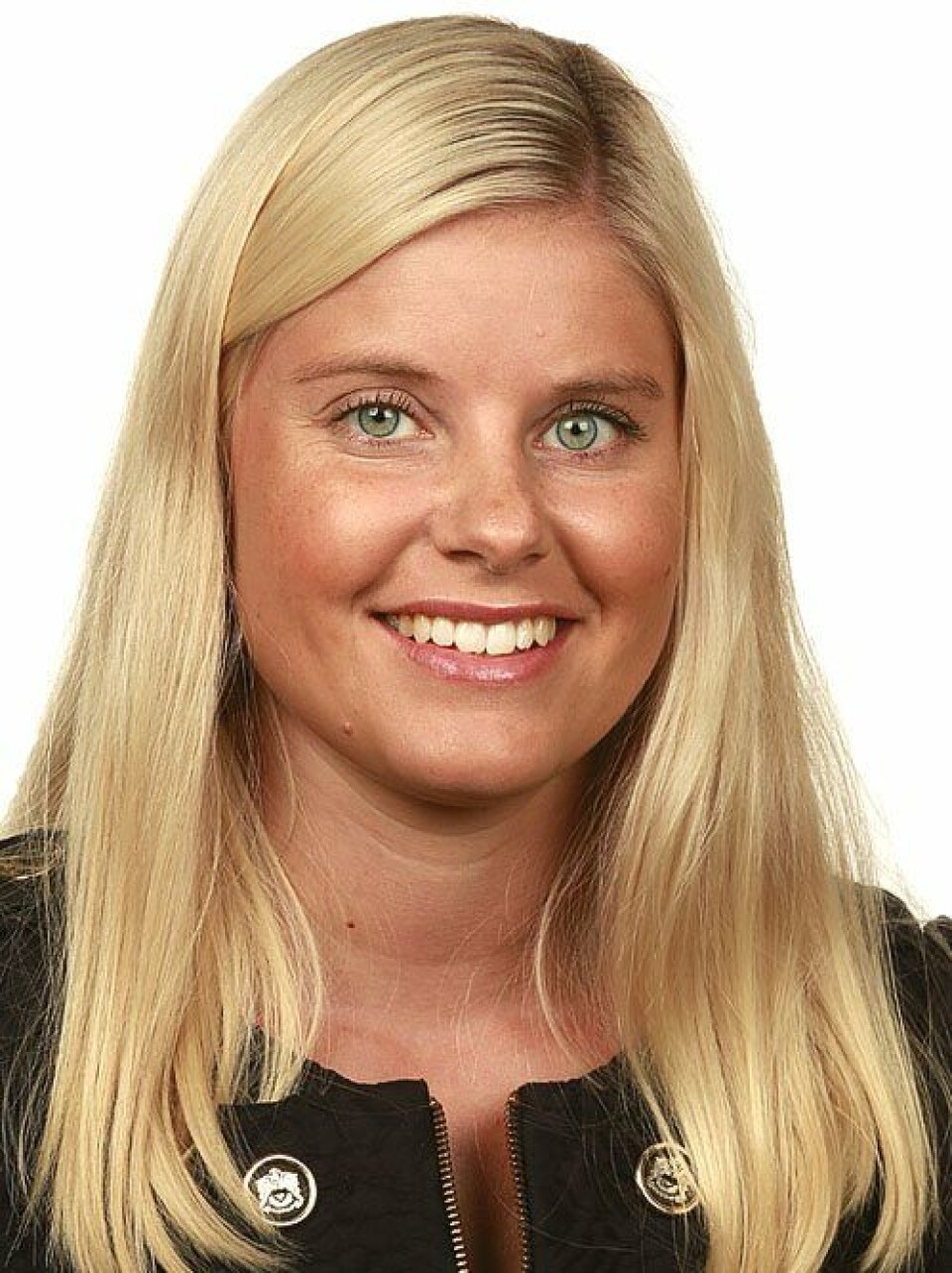
40% salmon tax unlikely says Norwegian finance minister
Proposals to slap a 40% special tax on Norwegian salmon farming are unlikely to be adopted, the country’s finance minister Siv Jensen said today.
The tax was one of several measures backed by the majority of members of a Special Tax Committee appointed by the government to look at how the industry is taxed.
The widely-leaked Official Norwegian Report (Norges offentlige utredninger, or NOU) was submitted to the Ministry of Finance and Jensen this morning. At a press conference, the minister pointed that proposals for policies in NOUs are often changed to varying degrees.

NOUs have changes
Jensen thanked the committee for its work but said that it was not certain that the committee majority’s conclusions about introducing a special tax will be included.
“This government has received over 100 NOUs. Some of them have ended up as policies, but none has gone through without changes to a greater or lesser extent,” she said.
Jensen said that such committees should work independently of politicians, but that after the SV (Socialist Left Party) tabled the proposal to set up the committee, there has been much debate about taxation of the aquaculture industry.
Three-month consultation
She wants to have the NOU dealt with in Norway’s parliament, the Storting, during the spring session 2020.
“To get it done, we will therefore send it out for consultation immediately without political consideration first. We have set the consultation time to three months,” she said.
“Although the debate has been high after the committee finished, it is important that the committee is heard. After all, I understand that the advice is not unambiguous. That’s why it’s important to have a hearing,” Jensen said.
The Special Tax Committee was chaired by economics professor Karen Helene Ulltveit-Moe, an executive board member of Norges Bank.
A majority of committee members argued that aquaculture benefits from exploiting natural resources in the same way that the oil industry and hydropower industry do, and should be taxed the same way with a so-called basic interest tax which would vary according to the profitability of the industry. They proposed that the tax should be set at 40%.

Predicatble revenues
The committee majority also proposed that other taxes could be imposed on fish farmers to provide income for municipalities where farms are sited. They said this would provide more stable and predictable revenues to the municipalities than the income the areas get when new fish farm licences are auctioned.
Currently 80% of the price paid for new licences goes to the municipalities that will host the farms, with central government keeping the remaining 20%, but the committee majority has proposed that all that money goes to the state.
That suggestion has been criticised by the Norwegian Fjord and Coastal Municipalities Group (NFKK) representing areas where fish farming takes place.
Taking away resources
“The majority in the committee wants the income to fall to the state to a much greater extent,” said NFKK general manager Anna Ljunggren, a former Labour member of the Storting.
“The state thus gets a return on work performed by the municipalities. In practice, it is the same as the state taking away resources from coastal municipalities. Other experience shows that this results in redistributed resources for central areas and more general tax cuts.
“Norwegian coastal municipalities are primarily those who spend a lot of money to facilitate the aquaculture industry. Then it is also reasonable that they are left with some of the returns.”























































